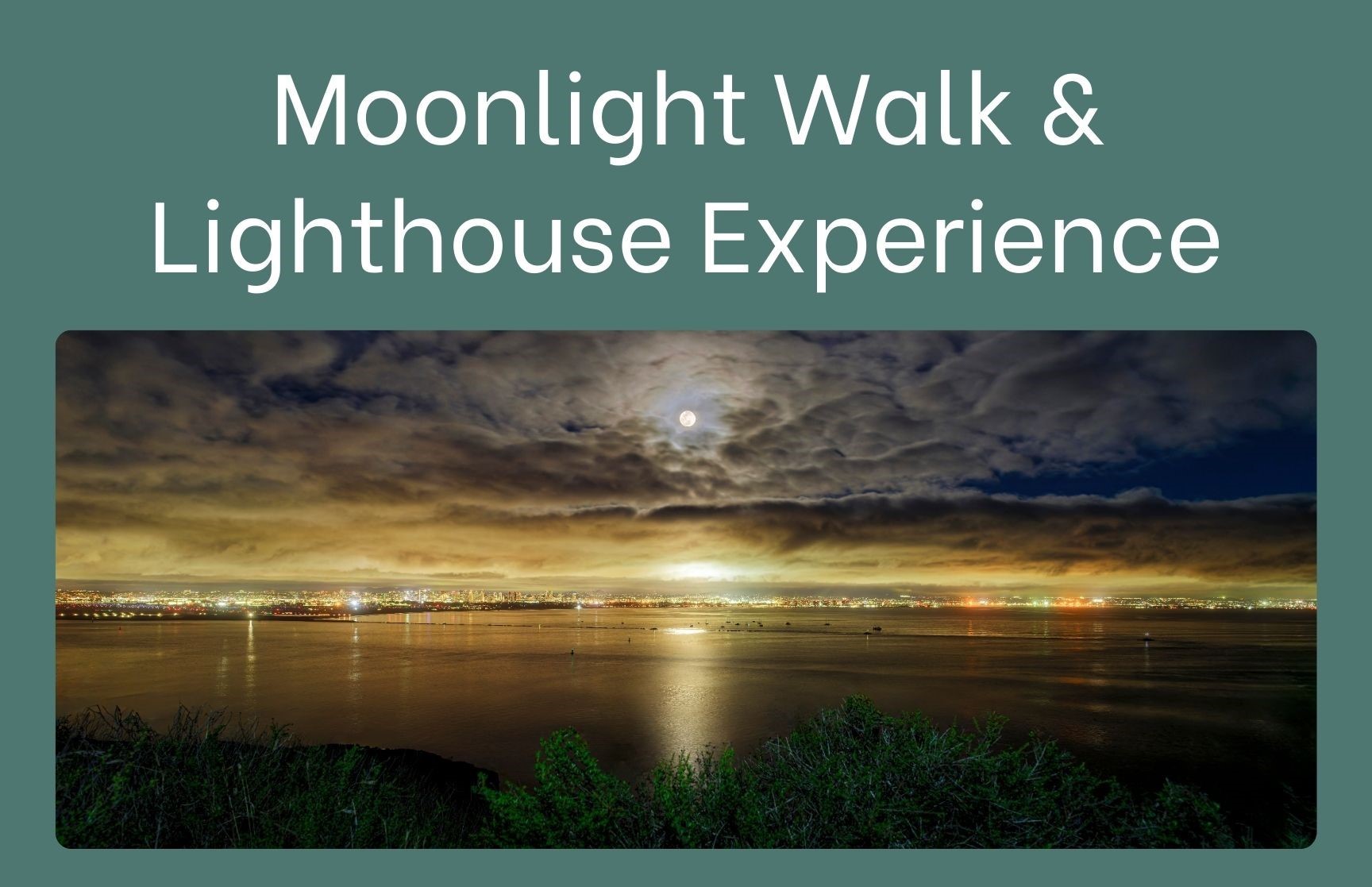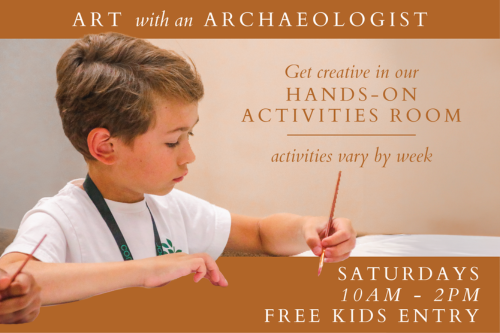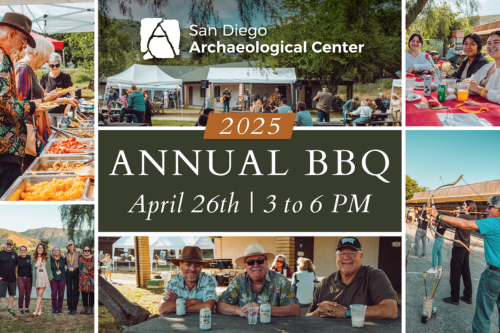San Diego Archaeological Center
Flintknapping Basics: The Ancient Art of Stone Tool Making
San Diego Archaeological Center 16666 San Pasqual Valley Road, Escondido, CA, United StatesStep back in time and discover the fascinating craft of flintknapping in this hands-on class! Flintknapping is the ancient technique of shaping stone into tools through the application of controlled force, a skill that has been used by humans for hundreds of thousands of years. In this class, you'll learn the basics of flintknapping, including how to create cutting tools, points, and other useful implements by striking and shaping raw stone. Guided by an experienced instructor, you’ll gain insight into the historical and cultural significance of flint tools and understand the precision involved in the process. Whether you're a history enthusiast, a survival skills aficionado, or simply curious about ancient craftsmanship, this class offers a unique opportunity to connect with a time-honored tradition. You’ll leave with not only new skills but also a deeper appreciation for how early humans created the tools that helped shape civilization. All materials are provided, and no prior experience is necessary. Ages 12 and up. Participants under the age of 18 years old must be accompanied by an adult participant. Cost: $45; SDAC Members $35; Scouts (GSUSA & Scouting America): $25 Registration is full.
Senior Wednesdays
San Diego Archaeological Center 16666 San Pasqual Valley Road, Escondido, CA, United StatesSeniors 65+ can enjoy free admission to the Center on Wednesdays. Discover the science of archaeology through our interactive Archaeology 101 exhibit, explore the cultural periods of San Diego, and uncover the Lives and Lifestyles on Block 112: The Untold Story of San Diego’s Working Class.
Story Time with an Archaeologist
San Diego Archaeological Center 16666 San Pasqual Valley Road, Escondido, CA, United StatesJoin us on select Thursday mornings for archaeology-themed story time at the Center. Stay afterwards to explore the museum with family-friendly activities like our Archaeology Quest and Field Lab.
Members Only: Moonlight Walk & Lighthouse Experience
Cabrillo National Monument 1800 Cabrillo Monument Dr, San Diego, CA, United StatesSDAC Members are invited to join the Cabrillo National Monument Foundation for an exclusive, guided moonlight walk along Cabrillo National Monument's Bayside Trail against the backdrop of the night sky, downtown, the bay, Coronado Island and the Pacific Ocean. Witness the majestic Old Point Loma Lighthouse illuminated at night, enjoy a complimentary cup of hot cocoa, and take a stroll under the moonlit sky after hours in this exclusive member experience. Current SDAC membership and RSVP are required. Must RSVP by April 9. Space is limited to 30 members. No pets permitted. Wear walking shoes and warm clothes. Bring water and a flashlight.
2nd Saturday Lecture Screenings
San Diego Archaeological Center 16666 San Pasqual Valley Road, Escondido, CA, United StatesJoin us every 2nd Saturday of the month for two screenings of our Living Room Lectures by archaeologists, experts, and authors. Lecture screenings start at 10:30 AM and 12:30 PM and are included with museum admission. No reservations needed. Seating is first come, first served.
Art with an Archaeologist
San Diego Archaeological Center 16666 San Pasqual Valley Road, Escondido, CA, United StatesFree admission for kids on select Saturdays! Join us for family-friendly activities in our classroom, where you can create your own art with an archaeologist, become a junior archaeologist with our miniature excavation units, and curl up with a book on our cozy reading rug. Families can also explore the museum on an Archaeology Quest and check out our Excavation Station and Field Lab. Kids 12 & under: Free; Adults: $5 (includes museum admission)
Annual BBQ
San Diego Archaeological Center 16666 San Pasqual Valley Road, Escondido, CA, United StatesJoin us for an afternoon of food, lively entertainment, and a gathering of San Diego’s archaeological community. Back by popular demand, we’re serving up all-you-can-eat carne asada, pollo asada, carnitas, and jackfruit adovada tacos from Frida’s Taqueria. Sip colorful agua frescas from Frida's, craft beer from Pizza Port, and local wine from Rancho Guejito Vineyard at our open bar while you enjoy live music from Probable Caws. Test your aim at our archery and atlatl range for all ages, enter our opportunity drawing for a chance to win cool prizes, and meet our newest staff and board members. Students can connect with professional archaeologists from local CRM firms. Proceeds from this event provide funding for the Center’s programming and preservation efforts. We hope to see you there! Cost: $50; SDAC Members $40 (pre-sale only); Students $20; Kids 12 & under: $15 Purchase Tickets The Center is looking for generous individuals and businesses to support the BBQ. For more information, see our BBQ Sponsorship page. Thank You to Our Corporate Sponsors!
Ancient Echoes: Archaeology of Mead
Twisted Horn Mead & CiderIt’s been known by many names: “Nectar of the Gods,” “Ambrosia,” “Balché,” and “Mead.” Regardless of what it was called, this golden liquid is believed to be the oldest alcoholic beverage ever brewed. In this installment of our Ancient Echoes series, you’ll not only learn about this mysterious drink’s place in history but also how mead is made today with a behind-the-scenes tour of Twisted Horn Mead & Cider. This event is 21+. About Ancient Echoes In our Ancient Echoes series, we look back into the archaeological record at the origins of many of our favorite things and breaking the conceptions of their modernity. Have you ever wondered about the roots of mead, chocolate, or beer? What about the importance of art, dance, and music to Ice Age hunter-gatherers? Ancient Echoes explores these topics and more, offering an interactive experience aimed at connecting us back with our deep past. About Twisted Horn Mead & Cider Twisted Horn Mead & Cider is located in Vista, California. Mead and cider’s histories date back thousands of years to when something that wasn’t quite beer and wasn’t quite wine emerged on the market. Unique and fantastical drinks indeed they were that offered flavors that beer and traditional wines could not. As time passed, fruits, spices and other adjunct flavors were also added to further enhance the already unique flavor profiles. Capitalizing on creativity and only using the best quality of those very ingredients, is what gave rise to this truly unique and extraordinary location. At Twisted Horn, mead and cider offerings are “Old World Style With a Twist”.




